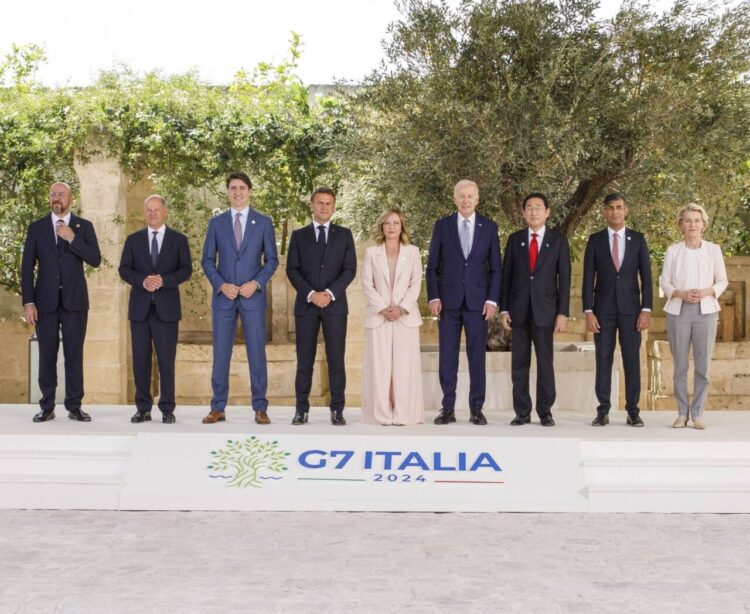G7 negotiators have finalized a plan to utilize profits from frozen Russian sovereign assets to support Ukraine. This agreement aims to bolster aid for Kyiv amidst significant domestic political challenges faced by the member countries. The deal, which includes a scheme to provide approximately $50 billion to Ukraine from the future proceeds of these assets, was confirmed by G7 officials involved in the discussions.
The financial assistance is expected to be the highlight of the G7 annual summit in the southern Italian region of Puglia. However, details regarding the design of the plan, such as who will bear the ultimate risk of the loan and how the funds will be distributed, remain unspecified.
According to an agreed statement seen by the Financial Times, the G7 will announce the launch of “Extraordinary Revenue Acceleration (ERA) Loans for Ukraine,” aiming to provide the funding by the end of the year. The funds will be channeled through multiple avenues to meet Ukraine’s military, budgetary, and reconstruction needs. The immobilized Russian assets will stay frozen until Russia ceases its war against Ukraine and compensates for the inflicted damages.
Ukrainian President Volodymyr Zelenskyy is expected to join G7 leaders later on Thursday to announce the deal. US national security adviser Jake Sullivan indicated that the leaders are close to a favorable outcome, and EU Council President Charles Michel expressed confidence that an agreement would be reached soon.
This summit occurs amidst political turmoil in several G7 countries, with upcoming elections in the US and the UK, and recent gains by far-right parties in the European Parliament elections affecting leaders in Germany and France.
Western officials believe the agreement on utilizing frozen assets for Ukraine signifies the G7’s continued unity in defending Kyiv and upholding their foreign policy priorities. The majority of the frozen Russian sovereign assets are held within the EU, and the deal was reached after negotiations between the EU and its G7 members—Italy, France, and Germany—who opposed a US proposal involving EU-generated earnings backing a US-issued loan.
The World Bank is anticipated to assist in disbursing the US portion of the loan package.

















Comments